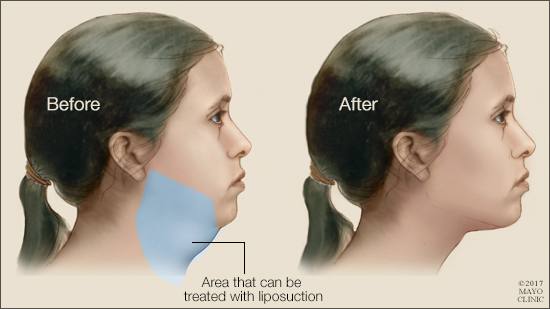-
Featured News
Mayo Clinic Q and A: Understanding liposuction
 DEAR MAYO CLINIC: How long are the effects of liposuction supposed to last, and how does it affect the skin around it? Is it true that if you get liposuction in one area of the body, the fat will eventually move to another area?
DEAR MAYO CLINIC: How long are the effects of liposuction supposed to last, and how does it affect the skin around it? Is it true that if you get liposuction in one area of the body, the fat will eventually move to another area?
ANSWER: Liposuction is a permanent removal of fat cells. But getting liposuction doesn’t guarantee permanently stable weight over time. You can still gain and lose weight. Although the fat cells do not move, if you gain weight after you have liposuction, other areas of your body unaffected by the procedure may get bigger than they did with previous weight gains.
The medical term for liposuction is suction-assisted lipectomy. This surgical procedure removes fatty deposits in specific areas of the body, such as the abdomen, hips, thighs, arms or neck. As adults, we have a fixed number of fat cells in our bodies that grow and shrink as we gain or lose weight. The number of fat cells themselves is stable. This means that the removal of fatty deposits — and the fat cells that make up the deposit — is permanent, and it has a permanent effect.
Liposuction can affect how the skin looks in the area where it’s done. For example, if you have dimples in that area, they may get worse after liposuction. Even if you don’t have any noticeable abnormalities or dimples on your skin before the procedure, some may appear as a result of liposuction. Liposuction doesn’t improve the look of skin irregularities such as stretch marks.
After liposuction, skin molds to the new contours of the treated areas. Some areas of skin shrink to fit the new volume of fat in that area better than others, and that can affect the skin’s appearance, too. If you have good skin tone and elasticity, your skin is likely to appear smooth. If your skin is thin with poor elasticity, however, skin in treated areas might appear loose.
Before you have liposuction, it’s important that you undergo a thorough evaluation, including a careful assessment of your skin’s quality and appearance in the area where you’d like to have liposuction, with a board-certified plastic surgeon who is trained and experienced in liposuction. Based on results of that evaluation, the surgeon can give you a better idea of how the procedure may affect your skin.
If you gain weight after you have liposuction, the way your body stores the fat and the fat’s distribution throughout your body will be different than it was before. Fat cells do not regenerate in the area where liposuction is done, nor do they move to another area of the body. But, because there are a limited number of fat cells where your body can store new fat, if you gain weight, some areas may get bigger than during previous weight gain, therefore giving an appearance of the fat moving.
Keep in mind that liposuction is a cosmetic procedure intended to improve the look of certain areas of the body. It isn’t designed to be used as a method for weight loss or as an alternative to healthy weight-loss strategies, such as regular exercise and a healthy diet.
Finally, be cautious about the provider you consult regarding liposuction. Some facilities offer liposuction and other cosmetic procedures without the oversight of a credentialed physician. Avoid them. If you’re considering liposuction, your best option is to work with a board-certified plastic surgeon at a reputable health care organization. — Dr. Alanna Rebecca, Plastic and Reconstructive Surgery, Mayo Clinic, Scottsdale, Arizona







